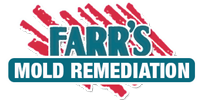It seems no one can hide from colder temperatures these days, and the places that have always experienced cold winters are experiencing even colder temperatures. If you’ve gotten away with no winter water damage to your home for years, your luck might be up sooner than you thought. Water is a powerful element, and when it freezes in cold temps, WATCH OUT. The home damage it leaves you with can cost thousands of dollars.
Know more about how water can cause damage to your home, so you can properly prepare your house before the coldest temperatures arrive and start wrecking your home and your savings account!
Reasons Behind Winter Water Damage
It’s hard to hear, but many of the reasons behind winter water damage are not just the water’s fault. If you own a home, and you aren’t aware of ways water damage can happen, you’re also part of the problem. We know, that’s harsh, but it has to be said. Now’s the time to embrace home ownership and learn as much as you can about the power of water!
Burst Frozen Pipes
Water in pipes freeze, and this causes expansion causing pipes to burst. With all the water pressure in your water pipes from continued usage, the burst pipes are going to burst and damage your home’s walls and floors.
Blocked & Overflowing Gutters
Before winter hits your area, you’ll want to make sure when you’ve cleaned up the leaves from your yard, that you’ve also cleaned them out of your gutters. When gutters are cleaned out, water can move through it freely, and will be less likely to freeze and cause blockages.
However, it doesn’t end there. If you’ve experienced snowfall, it’s a good idea to check your gutters regularly (especially if you see icicles forming along your gutters). Clear out any clogs, or blocks of ice.
If ice does form, and blocks the gutters, overflow happens. It backs up and can cause roof leaks and it can also spill over the sides, and can seep into your foundation and flood your basement.
Melting Snow
If you let snow sit on your roof and allow the sun to melt it away, the water accumulation can leak into your home through your roof causing damage and mold.
However, one of the most common issues most people forget is with melting snow at ground level. If the ground around your home slopes towards your foundation, the melting snow runoff can seep into your foundation. This can cause flooding as well as damage to your foundation.
Leaky Water Heater
Water heaters have year round usage, but in the winter it works a lot harder. Temperatures drop, and your home’s water heater kicks it up a notch. Regular maintenance from a professional, and replacing it if it is over 10 years old, can help lessen the chance it will leak.
Condensation
Now this issue is something most homeowners NEVER think about. Water condenses on cold surfaces, we see this often when we take our ice cold drinks into the hot summer days. We know it happens, but when winter arrives, we don’t think about it. Out of sight out of mind, right? We don’t necessarily see the water building up on water pipes, and windows!
Many families use humidifiers, which increase the chances of condensation building up on windows. This drips onto wood, carpet, and drywall. Over time, all that water can cause damage homeowners don’t necessarily notice, which means mold has a fantastic environment to grow in and thrive!
Experiencing Water Damage in Your Home?
Winters are rough on houses. You can do all the winter prep work they can, but sometimes the water wins and causes damage. It’s one of the things all homeowners have to accept. Did your home suffer from water damage? Are you concerned there might be mold, or foundation damage? Contact a mold remediation professional before the problem gets so bad you have to wipe out your savings in order to fix it.
Remove and Remediate Water Damage Today!
Water damage is the perfect environment for mold. Let us help.

